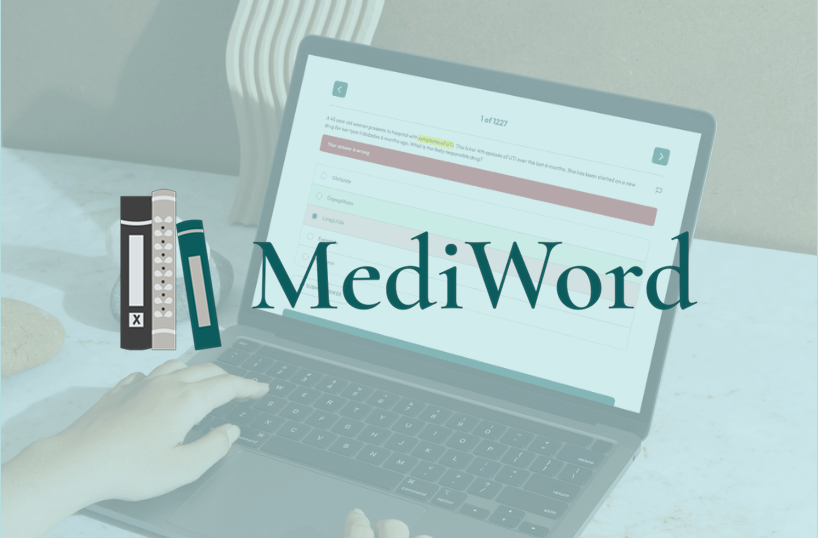Understanding the Structure of the MSRA Exam: What to Expect
The Multi-Specialty Recruitment Assessment (MSRA) is a key component of the recruitment process for specialty training in the UK. Designed to assess a candidate's clinical decision-making, professional judgment, and knowledge, the exam plays an essential role in determining whether an applicant is prepared for the challenges of their chosen medical specialty. Let’s take a closer look at how the MSRA question bank is structured, the types of questions you'll encounter, and what you need to know to prepare effectively.
The Structure of the MSRA Exam
The MSRA is divided into two main sections, each targeting different skill sets and competencies that are fundamental to a medical career. Both sections are designed to test how you apply your clinical knowledge in real-world scenarios, and using msra practice questions from reliable sources like Mediword that can help you simulate these challenges.
1. Professional Dilemmas Paper (Situational Judgment Test - SJT)
The Professional Dilemmas Paper evaluates how well candidates handle challenging professional situations. Rather than testing specific clinical knowledge, this section focuses on your ability to demonstrate the right professional attributes and behaviours in various workplace scenarios. These scenarios often involve interactions with patients and colleagues, and you will be asked to judge the most appropriate actions to take.
The key areas assessed in this section include:
- Professional Integrity: Demonstrating honesty and ethical behaviour.
- Coping with Pressure: Maintaining composure and making sound decisions under stress.
- Empathy and Sensitivity: Understanding and responding to the emotional and psychological needs of patients.
Format of the Professional Dilemmas Paper
This section consists of 50 scenarios, which are split into two parts:
- Part 1 - Ranking: For each scenario, you’ll be asked to rank four or five responses from most to least appropriate. This tests how well you prioritise actions in response to a given situation.
- Part 2 - Multiple Choice: You will be provided with eight possible actions and asked to choose the three that would be most appropriate for the scenario.
The Professional Dilemmas Paper is designed to assess your interpersonal and professional judgement, focusing on the qualities that will make you an effective and ethical healthcare professional.
2. Clinical Problem Solving Paper (CPS)
The Clinical Problem Solving Paper assesses your ability to apply medical knowledge to real clinical situations. This section is closely linked to the Foundation Programme curriculum and tests how well you can synthesise and apply knowledge in everyday clinical practice. Unlike the Professional Dilemmas Paper, the CPS section evaluates your ability to make informed clinical decisions based on scenarios you might face in the healthcare setting. Reviewing a high-quality msra question bank can be particularly useful for this section because it covers a wide range of clinical scenarios.
Format of the Clinical Problem-Solving Paper
This paper consists of 86 questions covering a wide range of clinical topics. The questions are divided into two main types:
- Extended Matching Questions (EMQ): You’ll be given a list of responses (usually between 7 to 10 options) and asked to choose the best answer for each scenario. Some responses may be used multiple times or not at all.
- Single Best Answers (SBA): For these questions, you’ll choose the most appropriate answer from a set of 5 to 8 options, each relating to a specific clinical scenario.
Core Topics Covered in the CPS Paper
The CPS section includes questions from a variety of medical disciplines, ensuring a comprehensive assessment of your clinical knowledge. Some of the core topics include:
- Cardiovascular
- Dermatology / ENT / Eyes
- Endocrinology / Metabolic
- Gastroenterology / Nutrition
- Infectious Disease / Haematology / Immunology
- Musculoskeletal
- Paediatrics
- Pharmacology and Therapeutics
- Psychiatry / Neurology
- Renal / Urology
- Reproductive
- Respiratory
Key Competencies Assessed
The CPS section not only tests your ability to diagnose and treat patients, but it also assesses several core competencies, such as:
- Investigation: Determining which tests or investigations are needed to confirm a diagnosis or rule out conditions.
- Diagnosis: Evaluating patient symptoms and identifying potential conditions.
- Emergency Care: Recognising critical conditions requiring immediate intervention.
- Prescribing: Understanding how to safely prescribe medications or treatments.
- Management (Non-Prescribing): Developing a clinical management plan that includes non-drug treatments.
Working through MSRA practice papers that cover these competencies can significantly improve your speed, accuracy, and confidence also help replicate the real exam experience and prepare you for the pressure of answering within strict time limits.
Test Format Summary
| MSRA Paper | Number of Questions | Time |
|---|---|---|
| Professional Dilemmas | 50 scenarios | 95 minutes |
| Clinical Problem Solving | 86 questions | 75 minutes |
Additionally, pilot questions are included for item development purposes, but they are not scored. These questions help improve the quality of the exam and do not affect your final score.
Conclusion
The MSRA exam is a challenging but fair assessment that is designed to test your clinical knowledge, judgment, and professionalism. By understanding the structure of the exam, knowing what to expect in both sections, and using high-quality Mediword msra question bank & practice papers for study resources, you can significantly improve your chances of success. Remember, the MSRA is not just about memorising facts—it's about demonstrating how well you can apply your medical knowledge in realistic scenarios.
Note:-Level up your MSRA prep with Mediword’s MSRA Question Bank: realistic recall questions, revision notes, up-to-date NICE guidelines. Sign up now to fast-track your success!
